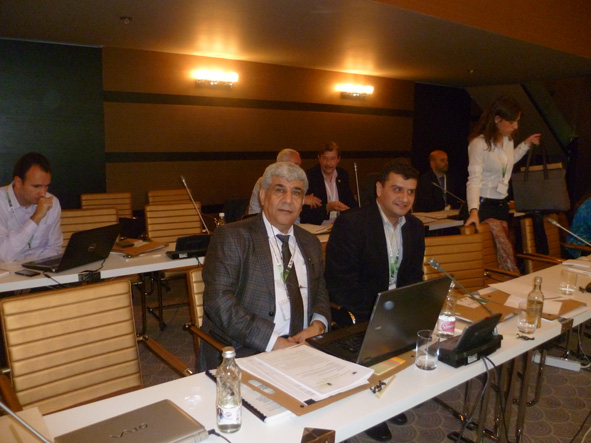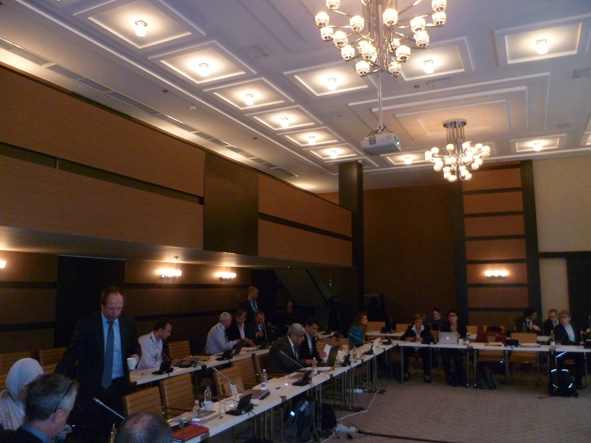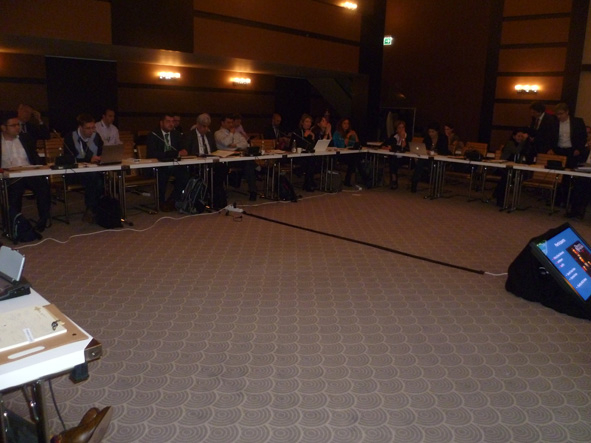An-Najah National University Participates in an International Workshop on How To Step Up International Cooperation to Bridge the Gap between Research and Innovation
Dr. Jalal Dabeek, the Director of the Urban Planning and Disaster Risk Reduction Center at An-Najah University, and the Vice-President of the National Authority to Mitigate Disaster Risks participated in a workshop on the European Union and international networks’ learning projects. The workshop was held in Budapest, Hungary, under the title of “How to Step Up International Cooperation to Bridge the Gap between Research and Innovation”.

Researchers and coordinators projects were funded by the European Union (mainly the FP7 projects) from Palestine, Egypt, Jordan, Italy, Greece, Belgium, Hungary, the United States, Romania, Austria, France, Britain, Spain, Germany, Japan, Mexico, Azerbaijan and Ukraine.
A number of EU project officials, from the head office in Brussels, including Ms. Elizabeth Lipiaton, the Head of the Research and Innovation Department,and Ms. Sussan Madders, the International Learning Network Program official, participated in the sessions of the workshop.
The sessions were allocated to address and discuss a number of themes, mainly: means and tools to support innovation, the different points of views of the stakeholders to establish international partnerships for innovation, and how to find the suitable methods to establish these partnerships.

The workshop featured interactive meetings to promote innovation in future projects, including the framework conditions for innovation, where representatives of participating states were divided into three groups: industrial countries, European neighboring countries, and developing countries.
During the meeting sessions, Dr. Jalal Dabeek reviewed the most important characteristics of the project to mitigate earthquake risks in Palestine (SASPARM-FP7) which is being implemented by An- Najah University in cooperation with the European Earthquake Engineering Institute (EUCENTER in Pavia, Italy), and how it promises to achieve the European Union’s most important criteria: integration, networking and interaction with different segments of the society, and its effects on the so-called non-technical innovation, sustainable development and community awareness.

The dialogue sessions showed that there is a great interest to give priority in the future to supporting projects related to institutions, including community-based projects linked to innovation, and to provide a number of interventions on the role and discreetness of the University in the field of applied research studies to provide community-based services.



